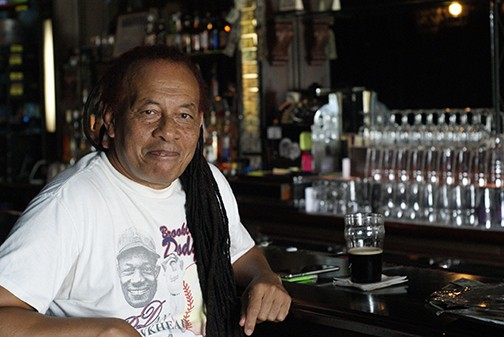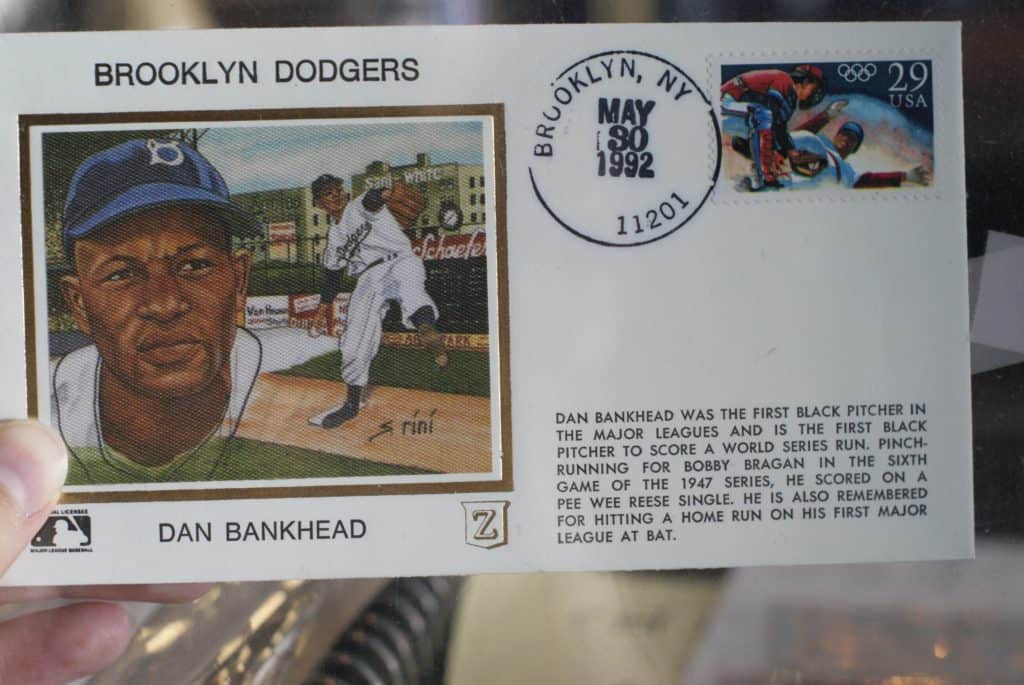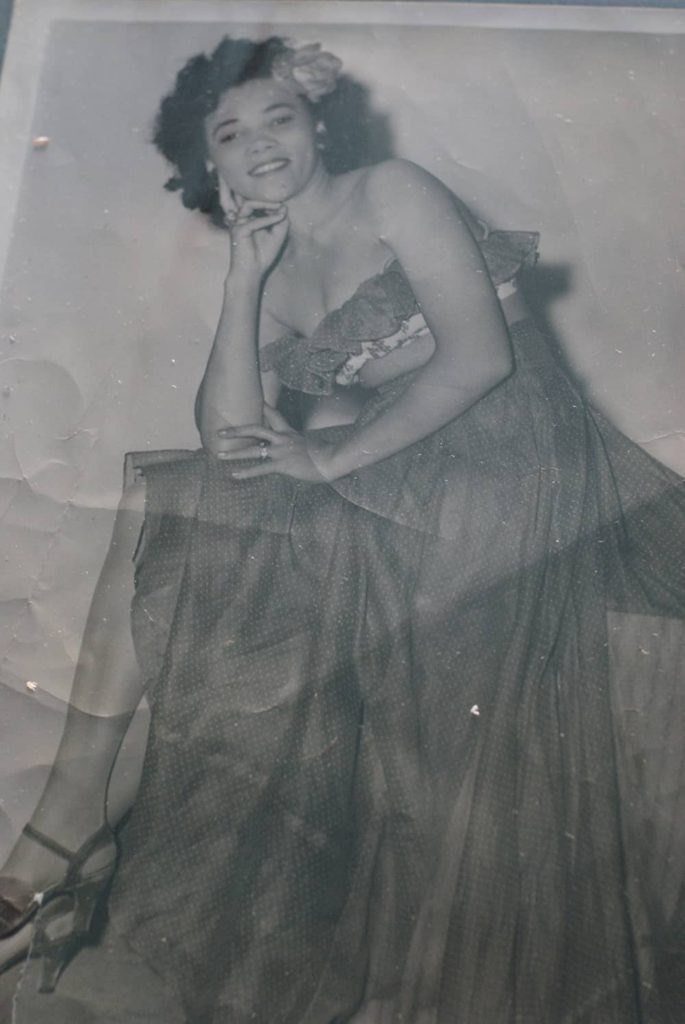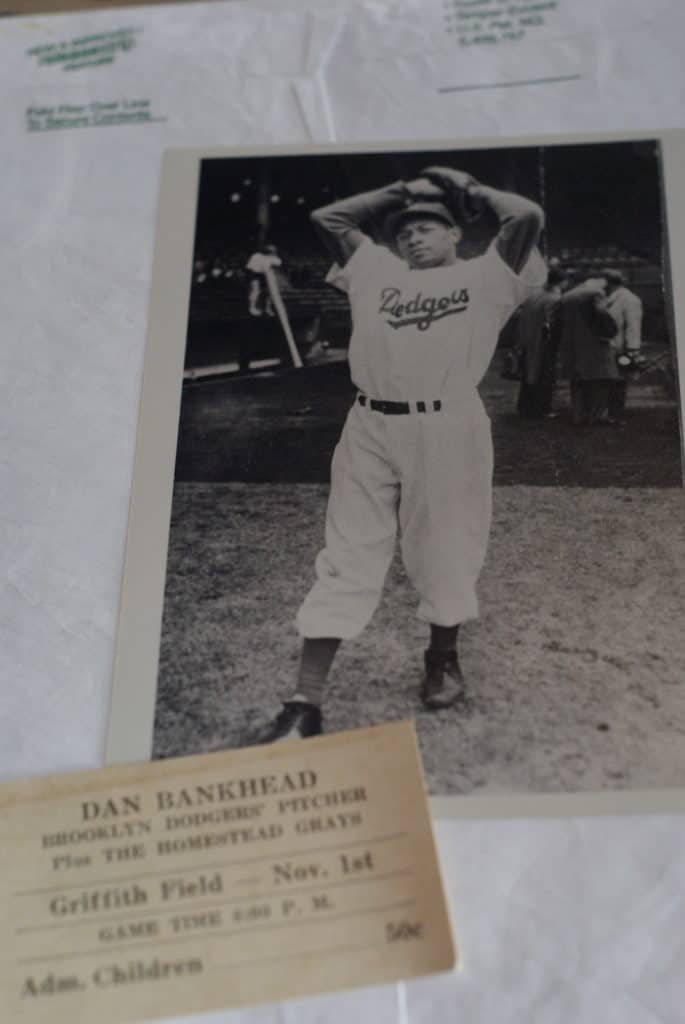
Dan Al-Mateen or “Maddan” sat with a bulging binder full of papers, newspaper clippings, and photographs spread out across the bar at Rocky Sullivan’s. As he started to talk, he flipped carefully through the pages, forming a patchwork image of the lives that his parents have led and touching on the various events and circumstances that had formed so much of his own upbringing.
In recent years, Maddan has become something of a historian. But he’s more than that: As a musician, Maddan has become a local fixture, not just in Rocky Sullivan’s, but all over Red Hook and the greater New York area.
Though he worked in sales for many years, he identifies more with his music as a singer and a keyboardist. Maddan plays everywhere, from local bars to parks and subways, to the streets of New York, where the “Sing for Hope” pianos are dispersed each summer. He loves not only the music but the act of performance, and he especially loves involving kids with his songs.
“I play anything but crap, I mean rap,” he joked, letting out a gravelly laugh, which seemed characteristic of his personality.
It quickly became obvious that Maddan does not linger too long on any one topic. Everything he says is spoken without pause or restraint, opinions flying wildly. This self-defined “old angry hippie” has a whole lot to say and he is not wasting any time.

LIFE IN NEW YORK
Growing up, Maddan spent his early years living on the top floor of 70 State Street. He recalled a happy life in Brooklyn Heights, a neighborhood he described as having been a melting pot of people from places like Puerto Rico and Italy. He spent days playing with his siblings and the other neighborhood children just like anyone else.
However, as the son of a major league baseball player and a talented singer, Maddan’s life experience has been more colorful than the average person can boast.
His father, Dan Bankhead, was the first black pitcher invited to join a Major League Baseball (MLB) team in 1947. Maddan explained that his father joined at the same time as Jackie Robinson, the famous second baseman largely said to be the first black player in the MLB. Dan spent 5 years with the Dodgers before moving on to play in the Mexican leagues until 1966.
Though he didn’t know it back then, race would become an important part of Maddan’s life, tied as he is to the important strides made by his father. But while Maddan said that he recognizes the racism of the previous generation, he admitted that growing up, racism just wasn’t an meaningful part of his life.
“My two parents were brave and courageous,” Maddan emphasized. “Racism was all over, but I didn’t see it. You didn’t see it until you left. The world is f—ed up out there.”
But despite the best efforts of his parents, their lives were heavily impacted by race. Notably, Maddan recalled that his father, a pitcher, had maintained that his fear of hitting white players prevented him from reaching his full potential.
In other ways, Maddan saw little glimpses of racism. When he was young, the Dodgers and the Sons of David used to hang out together, he recalled, noting the bond formed between the teams as they were both ostracized.
“Racism is bad, but it kept people together, kept people tight,” he smiled. “Everyone sat with everyone in the stadium.”

Two Stars
But Dan was not the only star in the family. Maddan’s mother, Linda Bankhead, was a “Billie Holiday-type singer” for some of the big bands of the swing era, though he acknowledged that his mother wouldn’t like that description. She wasn’t a Holiday fan.
A childhood of baseball stadiums and music venues left Maddan with more than the average lifetime’s worth of stories—from his adventures on the road to his memories of the city he grew up in.
Smiling, he recalled that Ebbets Field was an experience for the senses. “They wore wool uniforms back in the day. You’d walk into the stadium and it was all bright and you could smell the wool and old cheap booze and tobacco,” he said, lingering on the memory only for a moment. Maddan can hardly get out one story without starting in on the next.
During Dan’s “Dodger days,” Maddan recalled that it was not uncommon for his family to go visit Jackie Robinson and family at their Crown Heights residence. Other times, they were living on the road in places like Kansas City, where he visited his Grandmother.
“My grandma carried a gun on her leg and a hatchet. She would say, ‘I’m gonna cut off your legs if you don’t behave.’” Maddan laughed, momentarily lost in the memory. “Good times, those were good times.”
While his father was away playing for foreign teams, Linda Bankhead kept things together back in Brooklyn. She took it upon herself to raise her children surrounded by culture, taking them along with her to music clubs and museums alike.
“Mom was really good at exposing us kids to things,” Maddan commented. “The library was my home, the book was your world.”
In addition to working hard to provide her children with a good education, Linda started a group out of her basement to teach kids music, singing, and dancing. She gathered local artists and creative types to help with instruction, calling the organization Teen Down.
His life was star-studded right from the start. Maddan and his brother once got in trouble for playing around with the set equipment of a popular British rock band. Which band, you might ask? None other than The Beatles.
“This is a city of actors, performers,” he said with a sort of pride.
In this city of performers, Maddan has mixed with some of the best and the brightest. As a child, he sat on the lap of award-winning singer Donna Washington at the Round Table Club. He saw famed R&B duo Sam and Dave play at his first disco in Manhattan. His family associated with the Crosbys (the Bing Crosbys) at parties in Brooklyn Heights. He has spent time hanging out with the stars like the New York Dolls, Jimi Hendrix, and Janis Ian at famous clubs like the Elbow Room, CBGBs, and Webster Hall.
“My mom was a musician and that’s the path I followed. That’s what I love doing.” he explained before moving on without pause.

REFLECTIONS
Today, Maddan spends his days trying to figure out what happened to the wonderful world of his early years. He looks back to a time before cell phones and before fat-free food, a time when neighbors looked out for each other.
“The hippie era was an awesome time. We shared things—food, music…” he said with longing. “[Back then] you would sit down and try to fix things in your own neighborhood.”
Though not exactly sure what went wrong, Maddan has a lot of thoughts on what we could do better, from protesting the MTA or “May Take All Night,” as he not-so-affectionately calls it, paying equally across gender and race, and reducing public reliance on technology.
“I pray for blackouts,” he exclaimed dramatically, looking up and throwing his hands in the air with great animation. “During the last one, people were talking to each other again. It was awesome.”
In the end, he explained, it’s simple.
“It comes down to people. You gotta get back to people. You gotta know who your neighbors are.”








